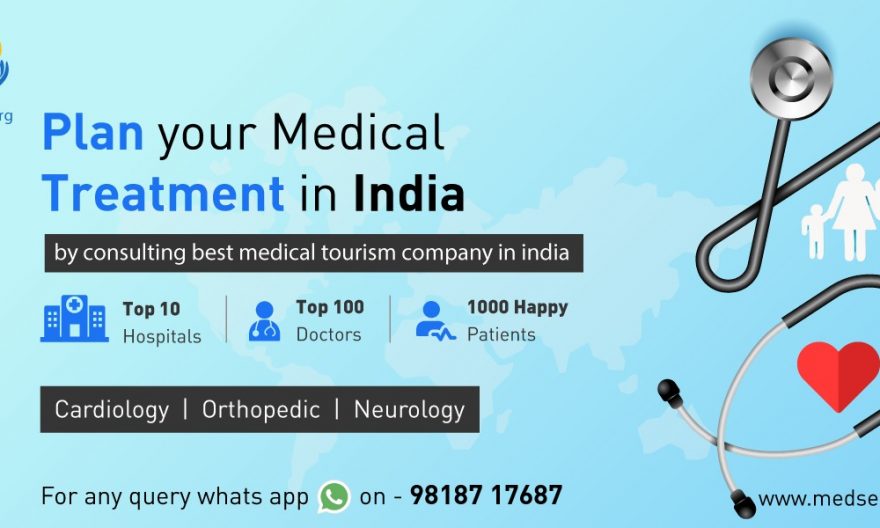
Cardiac or cardiovascular surgeries are procedures that can treat cardiac ailments. It is the solution when no other medicine can treat the heart problem. A doctor performs cardiac surgery to repair heart valves and other damaged structures, implant medical devices, treat heart failure or coronary diseases, and replace the heart with a new one.
Doctors perform over 500,000 open heart surgeries worldwide every year. According to a study in BMJ Journals, in India, alone doctors perform over 60,000 open heart surgeries yearly. With the incidence of cardiac disorders rising, the need to know about their possible treatments is increasing too. To serve this issue, let’s look at the five most common cardiac surgeries in India.
Coronary angioplasty and stent placement
Coronary angioplasty is a cardiac procedure that helps open clogged arteries of the heart. The doctor uses a small balloon catheter to enter the blocked artery and widen it. Widening the coronary artery improves blood flow. Angioplasty is the ideal treatment to relieve a patient from chest pain and breathing difficulties. Doctors also perform this procedure during a heart attack to open the artery and limit the damage to the heart.
Also Read: Boosting your Immunity with Foods
To keep the artery open, the doctor places a small wire mesh tube or stent. A stent supports the artery wall and prevents the vessel from re-narrowing. Doctors prefer doing Stent placements with angioplasty. Stents have a drug coating on them to help prevent plaque build-up.
Heart bypass Surgery
Heart bypass surgery or coronary bypass surgery is a cardiac surgery that helps redirect blood around a blocked artery in the heart. The doctor takes segments of healthy blood vessels from a different part of the body and attaches them above and below the blocked artery. Heart bypass surgery does not cure blockages but eases symptoms like chest pain and improves heart function.
A surgeon performs the procedure through the minimally invasive technique or beating-heart technique, depending on the condition. Blockages due to Coronary artery disease or atherosclerosis may require interventions other than coronary bypass surgery. Though, this treatment helps patients stay symptom-free for ten to fifteen years.
Heart valve surgery
The heart has four valves, namely mitral, tricuspid, pulmonary, and aortic valves. Valves are responsible for the proper flow of blood through the heart, into the body. When one of these valves stops functioning correctly, the doctor either repairs or replaces it. This cardiac surgery is known as heart valve surgery. The doctor can approach this procedure by either open-heart surgery or minimally invasive cardiac surgery.
To read such awesome content please go through the website bolebah, get up to date with amazing information.
A doctor decides to repair or replace the valve depending on the patient’s age, condition, and severity. A doctor corrects the valve by patching holes, reconnecting valve flaps, removing excess valve tissue, or separating fused valve flaps. When the valve is unrepairable, the doctor replaces it with a mechanical or biological tissue valve (made o cow, pig, or human heart tissue).
Pediatric cardiac surgery
Pediatric cardiac surgery, as the name suggests, is cardiac surgery in children. A doctor performs pediatric cardiac surgery to correct congenital heart defects or other heart diseases. Common by-birth diseases are septal defects, tetralogy of Fallot, TGA, and Hypoplastic left heart syndrome.
A team of pediatric cardiologists and heart specialists diagnose and formulate a treatment plan. Many pediatric surgeries may require complex interventions that require open-heart surgery. Open-heart surgery uses a heart-lung machine that takes over the heart’s functioning during cardiac surgery. A doctor treats minor defects by closed-heart surgery and cardiac catheterization.
Heart transplant surgery
Heart transplant surgery involves the removal of a diseased heart and replacing it with a healthy donor heart. A doctor performs this surgery after exhausting all other possible treatment options. Doctors perform heart transplant surgery in case of coronary artery disease, cardiomyopathy, congenital heart defects, heart valve disease, and previously failed heart transplant surgery.
A heart transplant is an invasive cardiac surgery that requires proper follow-up care to be successful. In some patients, the doctors perform heart transplant surgery with other transplants, like kidney-heart transplant, liver-heart transplant, and lung-heart transplant.
What’s after surgery?
Cardiac surgery is often invasive and requires preparation before and after the surgery. Follow-up care at the hospital and at home becomes pivotal in proper recovery and quick healing. India is witnessing a boost in post-surgical care and remote monitoring services. Medserg Health solves the issue of attaining valuable healthcare at home with its range of cardiac care programs.
Medserg Health enrolls patients after their cardiac surgery. The Cardiac Care program connects patients with trained care coaches at any point of the day. The program also enables access to surgical care and wound management, alerts for vital stats, a virtual medical library, daily reminders, and appointments with dieticians, doctors, and psychologists. The cardiac care program also allows doctors to monitor their patients remotely and intervene when necessary.
Virtual care programs make it possible for both doctors and their patients to understand their recovery journey.
1,755 total views, 3 views today

